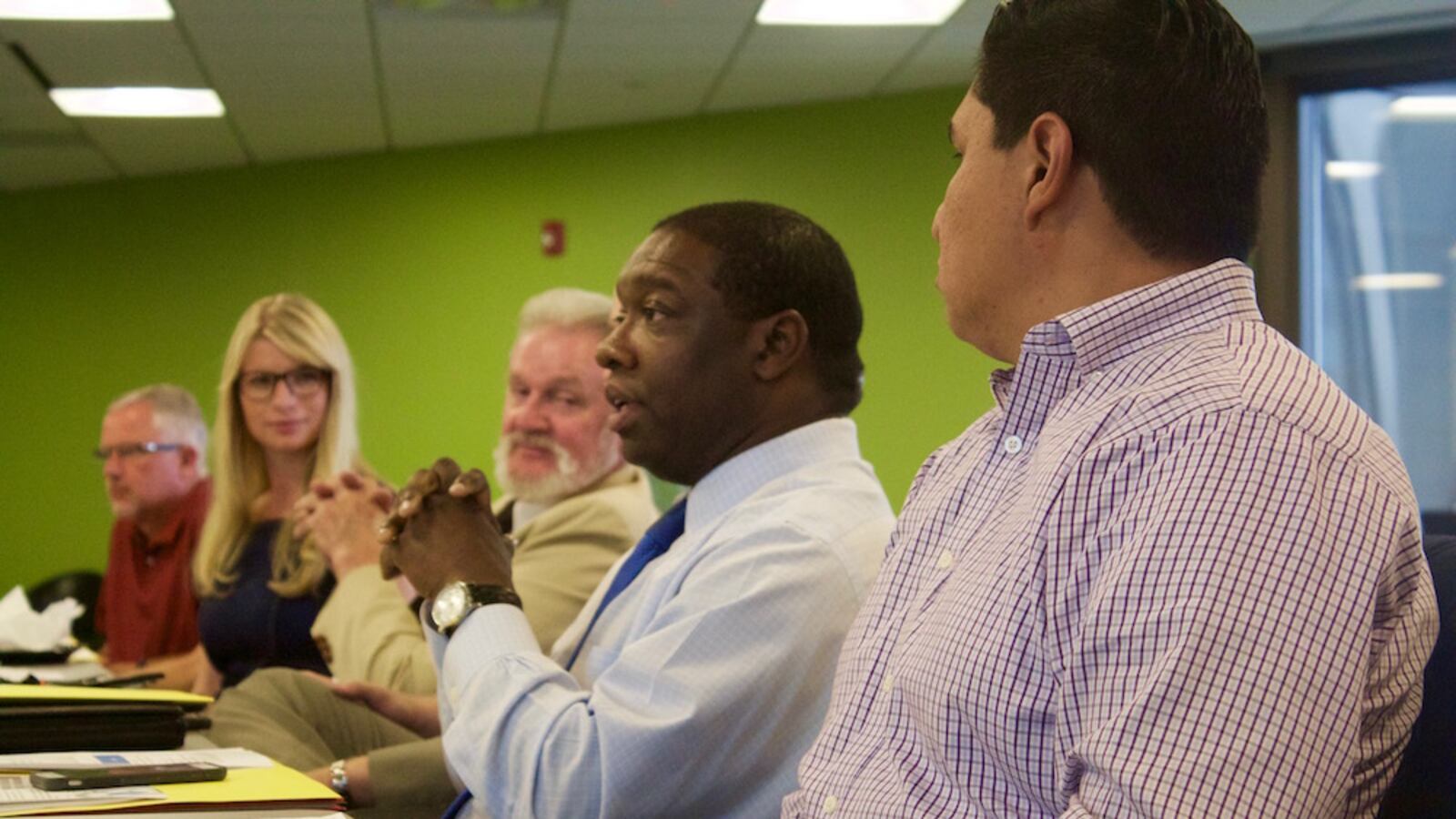Last week we told you about a group of Colorado lawmakers meeting to study the nation’s new education law, the Every Student Succeeds Act.
This week, a second group — assembled by the Colorado Department of Education and made up of representatives from the state’s most influential education advocacy groups — met to start its own work on the state’s new education plan.
The plan required by ESSA is the state’s case to continue receiving federal funding, said Patrick Chapman, who oversees federal programs for the education department. Colorado receives more than $200 million in federal money for low-income schools, teacher training, and other programs.
So, why are two different committees working on it?
The education department’s committee will produce the plan for the State Board of Education and the governor to approve. They are only supposed to address issues under the purview of the State Board of Education and the education department, like what factors determine the quality of a school.
Meanwhile, the Colorado lawmakers who met last week are studying the law to understand what role they should play in developing the plan — which is likely to be a very limited one. Interim Education Commissioner Katy Anthes has said the state’s current laws are in line with federal expectations and do not need to be changed.
The larger question lawmakers face is how to flex their newfound freedom under ESSA to rewrite state laws in the future.
And at both meetings, members worried that their respective work could end in a political showdown.
Lawmakers will return to the Capitol in January just as the department is in the thick of its work. The worst case scenario, committee members said, would be lawmakers rewriting the state’s education laws as the department is submitting its plan based on current ones.
State. Rep. Jim Wilson, a Republican from Salida who sits on both committees, was the most vocal.
“My concern is that some of my colleagues [in the legislature] may try to correct what we’ve done,” he said Monday, at the education department’s meeting.

